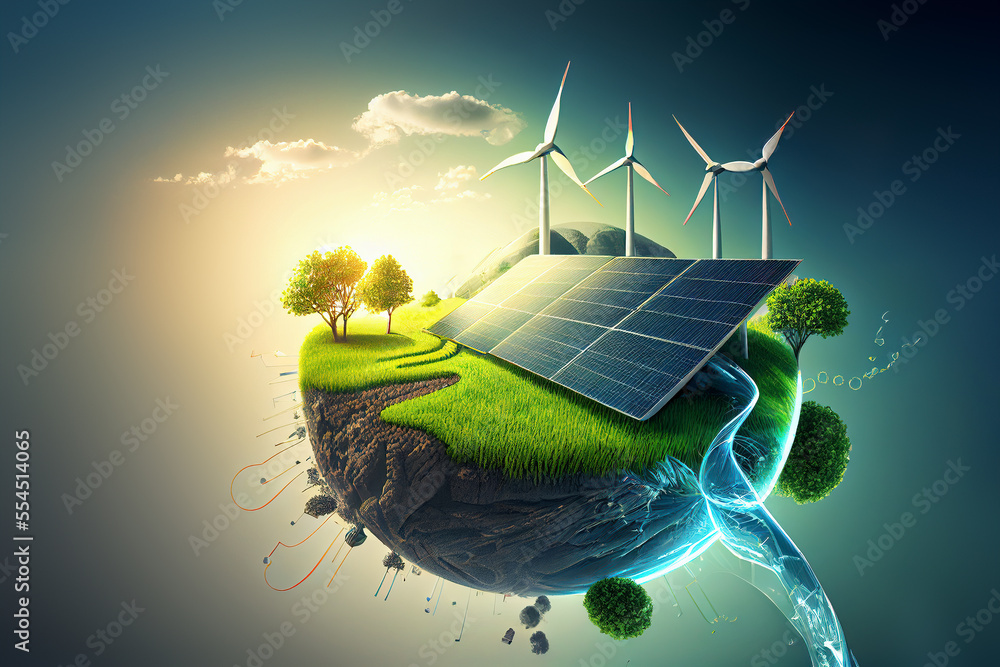Energy efficiency is a multifaceted concept that transcends mere reduction in energy consumption. It embodies the principle of “doing more with less” — an ideal that is increasingly vital in our modern world, characterized by escalating energy demands and finite resources. What does energy efficiency entail, and why is it of paramount importance in contemporary society? This discourse aims to unravel these complexities, illuminating the societal, environmental, and economic implications of energy efficiency.
At its core, energy efficiency refers to the practice of using less energy to provide the same service or achieve equivalent output. It can be quantified through various measures, such as energy use per unit of output in industrial processes or the energy required to heat a residential space. The underlying technology often utilized in promoting efficiency includes advanced appliances, cutting-edge insulation materials, and smart home systems. However, one might ponder: if energy efficiency is so advantageous, why has widespread adoption not been realized? This question introduces an aspect of human behavior and societal inertia that merits exploration.
The significance of energy efficiency manifests through a plethora of lenses. Primarily, it contributes to environmental sustainability. With the global focus on mitigating climate change, energy consumption stands at the forefront. The burning of fossil fuels—while historically the primary energy source—exacerbates greenhouse gas emissions, thereby propelling global warming. By enhancing energy efficiency in various sectors, from commercial enterprises to individual households, we can substantially reduce carbon footprints. Thus, energy efficiency serves as an ameliorative mechanism to combat environmental degradation.
Moreover, energy efficiency plays a critical role in economic performance. In an era marked by volatile energy prices, businesses and consumers alike face financial vulnerabilities tied to energy dependence. By implementing energy-efficient technologies, entities can lower operational costs significantly. The benefits of energy efficiency extend beyond mere savings; they often lead to the creation of jobs in renewable energy sectors, further enhancing economic resilience. Notably, investment in energy-efficient infrastructure is a means of fostering sustainable economic growth.
In addition to environmental and economic benefits, energy efficiency also enhances energy security. Nations heavily reliant on imported fossil fuels find themselves at the mercy of geopolitical dynamics and market fluctuations. By improving energy efficiency, countries can curtail their dependence on external energy sources, thereby safeguarding their energy independence. This situation creates a more stable energy landscape and promotes a robust strategic position in international arenas.
Transitioning to a discourse on social implications, energy efficiency can enhance the quality of life. For instance, improved energy-efficient buildings often equate to heightened comfort levels, better indoor air quality, and reduced utility costs for occupants. Consequently, individuals can allocate funds previously spent on energy bills toward education, healthcare, and leisure, thereby enhancing overall societal well-being. The interplay between energy efficiency and social equity is an indelible theme; lower-income communities frequently bear a disproportionate burden of energy costs. By promoting energy-efficient systems, these economies can witness tangible benefits, fostering a more equitable distribution of resources.
An intriguing facet of energy efficiency involves the pervasive challenge of behavior change. Despite clear advantages, the transition to energy-efficient practices often encounters resistance. Individuals may be hesitant to adopt new technologies due to perceived inconveniences, misinformation, or simply inertia. The question thus arises: How can societies galvanize collective action toward energy efficiency? This challenge necessitates educational initiatives, policy frameworks, and community engagement strategies to effectively shift behavioral paradigms.
Governments and regulatory bodies play a crucial role in this transformative process. Policy measures such as subsidies for energy-efficient appliances, stringent building codes, and incentivization of renewable energy technologies can create an environment conducive to energy conservation. Furthermore, public awareness campaigns are vital in fostering an understanding of the advantages of energy efficiency, encouraging individuals to make informed decisions. One must also consider the role of technological innovations in shaping our energy landscape. The advent of smart grids, energy monitoring systems, and IoT devices empowers consumers by providing real-time energy usage data, potentially influencing more conscientious behavior.
As we delve deeper into the realm of energy efficiency, we encounter the multifarious strategies that can be employed to enact positive change. From retrofitting outdated infrastructure to implementing cutting-edge technologies, the spectrum of solutions is vast. However, it is imperative to recognize that a singular solution will not suffice. A collaborative approach that encompasses government intervention, private sector innovation, and community engagement is essential for fostering a culture of energy efficiency.
In conclusion, energy efficiency occupies a central role in the modern landscape, possessing the potential to mitigate environmental repercussions, bolster economic stability, and elevate social equity. The challenge lies not merely in recognizing its importance but in mobilizing collective action towards its implementation. As we navigate an increasingly uncertain future, the principles of energy efficiency must inform our decisions at every level, engendering sustainable development and paving the way for a resilient global society. Ultimately, the pursuit of energy efficiency is not merely a technical intervention; it is a moral imperative for the stewardship of our planet and the well-being of future generations.










